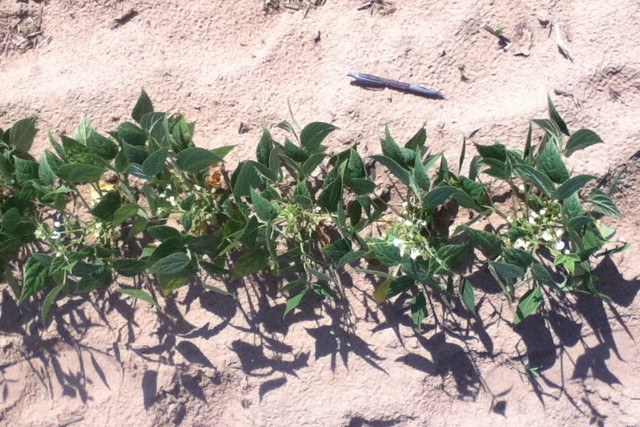Recent developments in our understanding of root function will allow us to breed new bean varieties for drought prone areas with poor soil fertility.

Common bean plants exhibiting water stress in a sandy soil
PIs: Jonathan P. Lynch and Jill Findeis, Pennsylvania State University
Host Country (HC) and U.S. Co-PIs: Magalhaes Miguel and Celestina Jochua, IIAM, Mozambique; Juan Carlos Rosas, Escuela Agricola Panamericana-Zamorano, Honduras.
Funding Source: Pulse CRSP
Website: http://www.pulsecrsp.msu.edu/
Abstract
Drought and poor soil fertility are primary constraints to pulse production in developing countries. Recent developments in our understanding of root biology make it possible to breed crops with greater nutrient efficiency and drought tolerance. Such crops will improve productivity, enhance economic returns to fertility inputs, and may enhance overall soil fertility and system sustainability, without requiring additional inputs. The overall goal of this project is to realize the promise of this opportunity to substantially improve bean production in Africa and Latin America. The project will 1) Use novel root traits to breed beans with greater tolerance to drought and low soil fertility, 2) Develop technology packages of improved genotypes with local fertilizer sources and soil water conservation, 3) Understand constraints to adoption of new bean technologies, and household and intra-household impacts of adoption on income and nutrition, and 4) Enhance host country capacity to address these issues. The project capitalizes on previous successful collaboration among Penn State, IIAM in Mozambique, and EAP-Zamorano in Honduras, and successful interdisciplinary collaboration among plant breeding, plant physiology, agroecology, and socioeconomics.
Host Countries: Mozambique and Honduras
Crop focus: Bean

